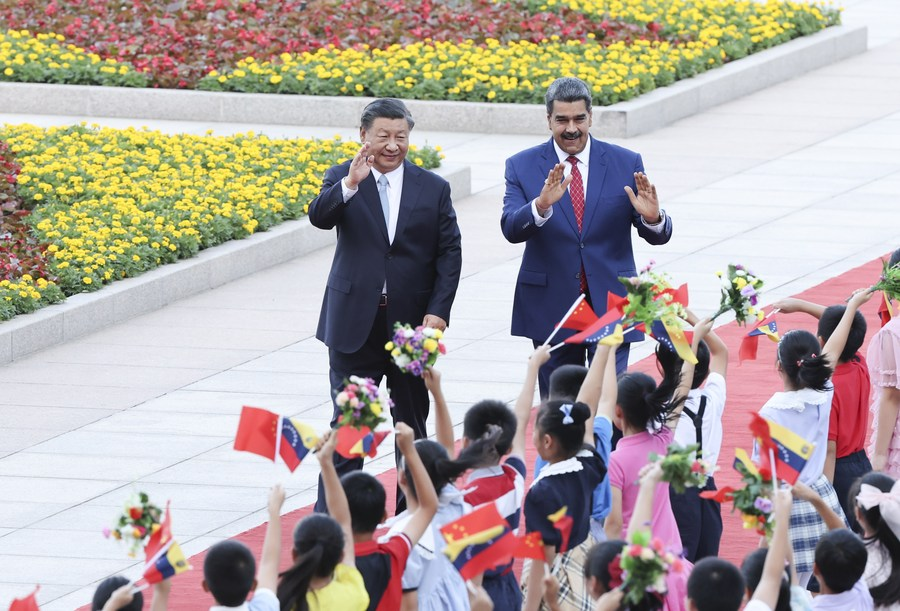WeChat and international fentanyl trade: prosecutors in six U.S. states, including NH, are moving
- Gabriele Iuvinale

- 13 mag 2025
- Tempo di lettura: 3 min
The fentanyl crisis is one of the most horrific disasters America has ever faced. On average, this drug kills more than 200 Americans a day. China, under the leadership of the Chinese Communist Party, is the geographic source of the fentanyl crisis. Companies in China produce nearly all of fentanyl's illicit precursors, the key ingredients that drive the illicit global trade in this synthetic drug
Attorneys general in six states, including New Hampshire, said they plan to hold WeChat, a Chinese messaging and payment platform used by fentanyl traffickers, to account.
The bipartisan group has given WeChat, the so-called “super app,” a month to explain what steps, if any, it is taking to combat its use as money laundering for international drug trafficking.

The attorneys general of Colorado, New Jersey, Mississippi, North Carolina and South Carolina also signed the letter.
“We need answers; we need them now,” Republican Alan Wilson, South Carolina’s attorney general since 2011, said at a news conference Monday in Charlotte, North Carolina.
A letter dated Monday instructs WeChat to send answers by June 11 to the attorneys general in North Carolina and New Jersey, two states where “knowingly facilitating, or aiding and abetting, money laundering” is a crime.
The app has been linked to major drug operations.
In October 2023, the Drug Enforcement Agency announced indictments against eight Chinese companies and 12 people in a bust dubbed Operation Chem Capture.
They were accused of importing the chemicals used to make fentanyl — called fentanyl precursors — as well as other drugs such as xylazine that are mixed with fentanyl to increase cartels’ profits.
The multi-agency operation seized enough synthetic chemicals to make more than 48 million potentially lethal doses, the agency’s administrator, Anne Milgram, said in a statement submitted to the U.S. House last May.
The PRC, under the leadership of the Chinese Communist Party, is the ultimate geographic source of the fentanyl crisis. Companies in China produce nearly all of the illicit fentanyl precursors, the key ingredients that drive the illicit global fentanyl trade.
Last month, the Financial Crimes Enforcement Network (FinCEN) of the U.S. Department of the Treasury (Treasury) released a Financial Trends Analysis (FTA Report) highlighting illicit finance phenomena related to fentanyl. The FTA Report follows up on two advisories issued by FinCEN in 2019 and 2024, covering the types of financial transactions and warning signs associated with fentanyl-related activities.
The FTA Report’s primary conclusion – that the US, Mexican, Chinese, and other foreign financial sectors serve as a potent and pervasive medium for the fentanyl supply chain – is not new. Nonetheless, the report underscores the urgency for banks and other businesses with ties to Latin America to review their exposure to this activity and update their compliance controls. This is especially relevant in light of recent developments, such as the announcement of Executive Order 14157 (discussed in this alert) ordering the “total elimination” of certain cartels and transnational criminal organizations, the subsequent designations of Latin American cartels and other persons facilitating fentanyl trade on their behalf as Foreign Terrorist Organizations (FTOs) and Specially Designated Global Terrorists (SDGTs), and the powerful investigative and enforcement tools available to US law enforcement arising from these designations.
Back in February 2017, the U.S.-China and the Security Review Commission published a report detailing how illicit flows of fentanyl and other new psychoactive substances (NPS) from China were fueling an opioid crisis in the United States.




Commenti